For many of us who grew up in the ’80s and ’90s, certain restaurant chains were part of our weekly dining excursions. Depending on where you lived, you might have frequented Chi-Chi’s, the over-the-top Tex-Mex chain that offered its signature fried ice cream and chimichangas, or Red Lobster, famous for its cheddar bay biscuits.
But today, many of these once-beloved restaurant chains are struggling. Red Lobster has since declared bankruptcy and closed 99 stores, and although it still has 600 locations globally, more closures are looming. Chi-Chi’s once had 237 locations in the U.S. and has since shuttered all stateside locations.
Many other popular restaurant chains are also currently at risk. It’s important to note that this list doesn’t mean bankruptcy is imminent. But these companies face hurdles, that, if sustained over the next decade could place them on a difficult road, with the need for closing additional stores or perhaps even bankruptcy.
Without further ado, read on and discover the once-beloved restaurant chains that may not survive.
1. Boston Market
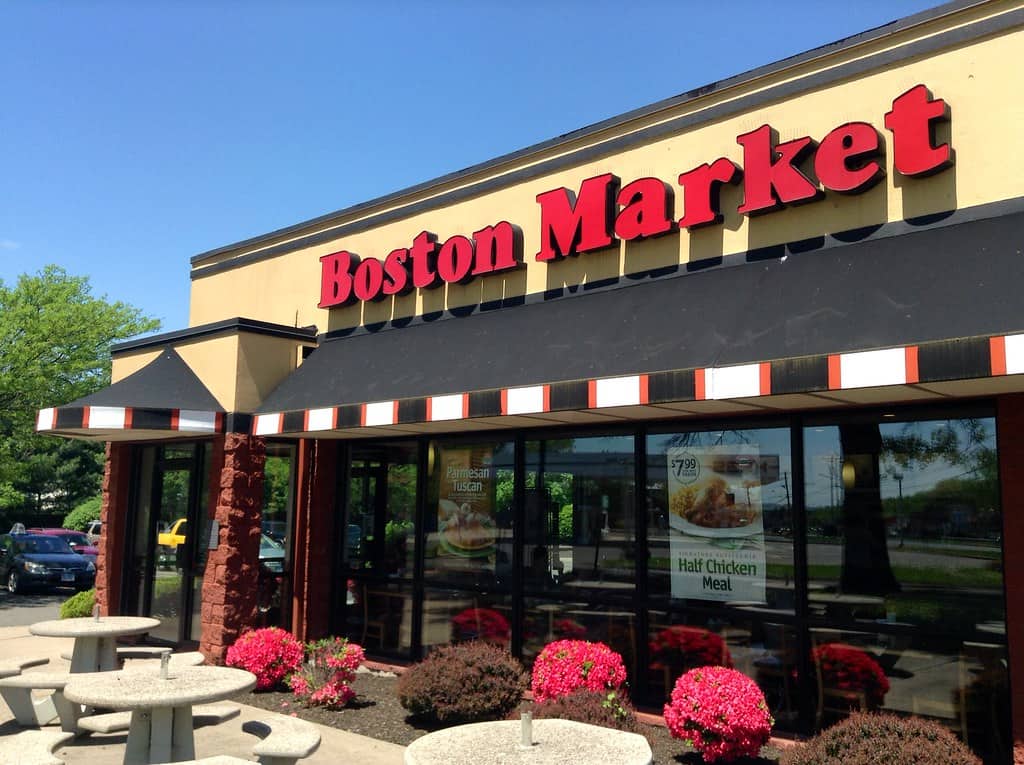
©”Boston Market Restaurant” by JeepersMedia is licensed under BY 2.0. – Original / License
Boston Market has been a weird situation. The chain was bought by Jay Pandya, who has personally filed for bankruptcy twice since late last year.
Amid his bankruptcy filings, remaining Boston Markets have been shuttering across the country. The problems at the chain seem to be beyond repair, with vendors filing lawsuits that they haven’t been paid.
At the few remaining locations, there have even been reports of workers needing to shop at local grocery stores to get necessary ingredients. It’s not clear how many restaurants are still operating. As of early March, industry publication Restaurant Newsput the number at 27. A quick count on their website shows 35 locations currently operating, with some strongholds in areas like Pennsylvania and New Jersey.
Either way, it doesn’t look like remaining Boston Markets can last much longer.
2. TGI Fridays
©”tgi friday’s palisades center” by goodiesfirst is licensed under BY 2.0. – Original / License
TGI Fridays was recently purchased by its global franchisee. The company had announced it planned to close dozens of locations in January, but in April its UK-based global franchisee swooped in and bought U.S. operations of the company.
At this point, TGI Fridays is more of a global concept. At the time of the acquisition of U.S. operations, there were about 100 corporate-owned restaurants in the United States. However, there are nearly 600 globally spread out across 44 countries.
This deal almost certainly gives TGI Fridays U.S. stores a new lease on life. Yet, it’s not uncommon for restaurants to ping pong between different ownerships and private equity. So if UK-based Hostmore isn’t able to turn TGI Fridays around, they could simply spin off U.S. locations again.
3. Cracker Barrel
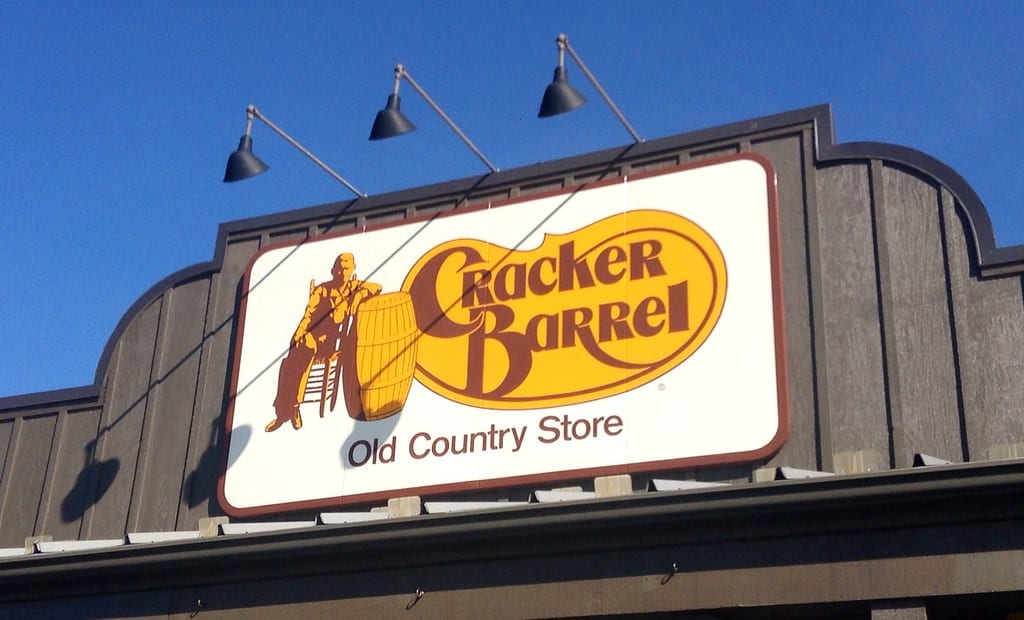
©”Cracker Barrel, 10/2014 by Mike Mozart of TheToyChannel and JeepersMedia on YouTube #Cracker #Barrel” by JeepersMedia is licensed under BY 2.0. – Original / License
Last week, Cracker Barrel’s CEO said the company was ‘not as relevant as we once were’ and ‘has lost some of its shine.’
The company has seen some store closures recently. Cracker Barrel tried expanding more out West but has seen stores in states like Oregon cease operations for good.
Cracker Barrel’s CEO said many dishes haven’t been updated in decades and the chain needs menu updates and pricing changes. It remains to be seen whether these changes are enough to get Cracker Barrel back on strong footing.
The company still reports an annual profit of $83 million, which is a far cry from the money-losing ways of Red Lobster. Yet, that number is down from $254 million in 2021. If that trend keeps up, the company could be on a long slide toward bankruptcy.
4. Fuddruckers
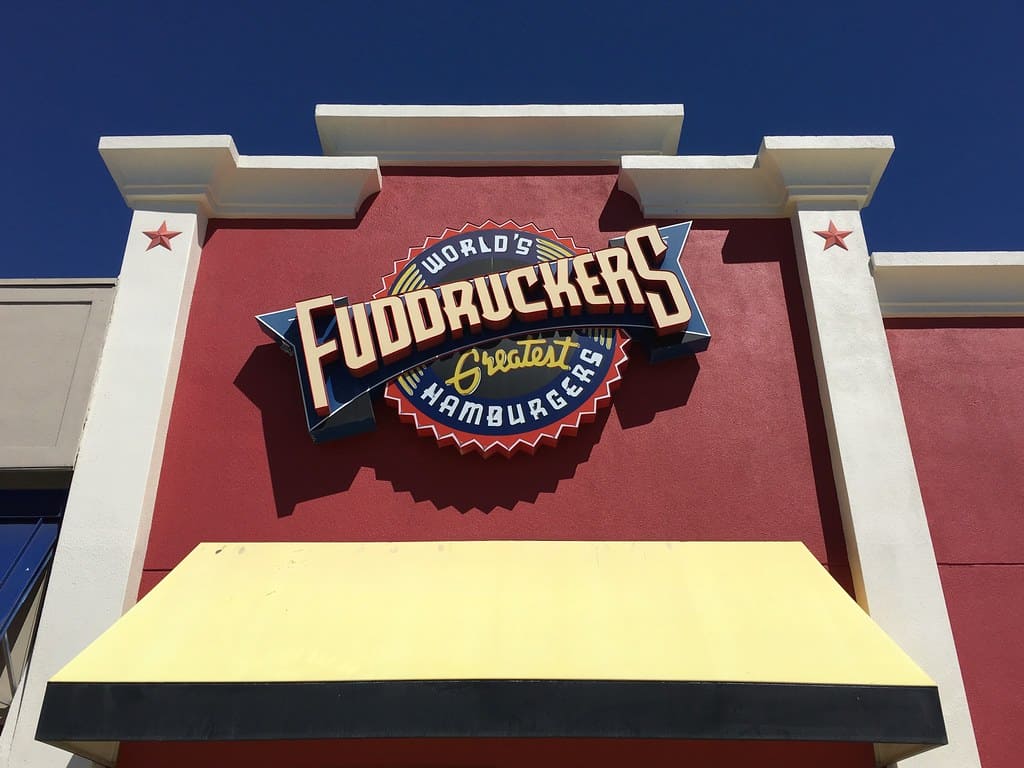
©”Fuddrucker’s Westland Mall Hialeah” by Phillip Pessar is licensed under BY 2.0. – Original / License
There appear to be only 57 Fuddruckers locations remaining in the United States. The chain has been shedding locations for years. There is only one remaining store in states like California, Massachusetts, and Tennessee while New York has no locations remaining.
Fuddruckers still has 13 locations in Texas, although a couple of stores are ominously listed as “Temporarily Closed.” The trend doesn’t look positive for this once venerable chain.
5. Kona Grill
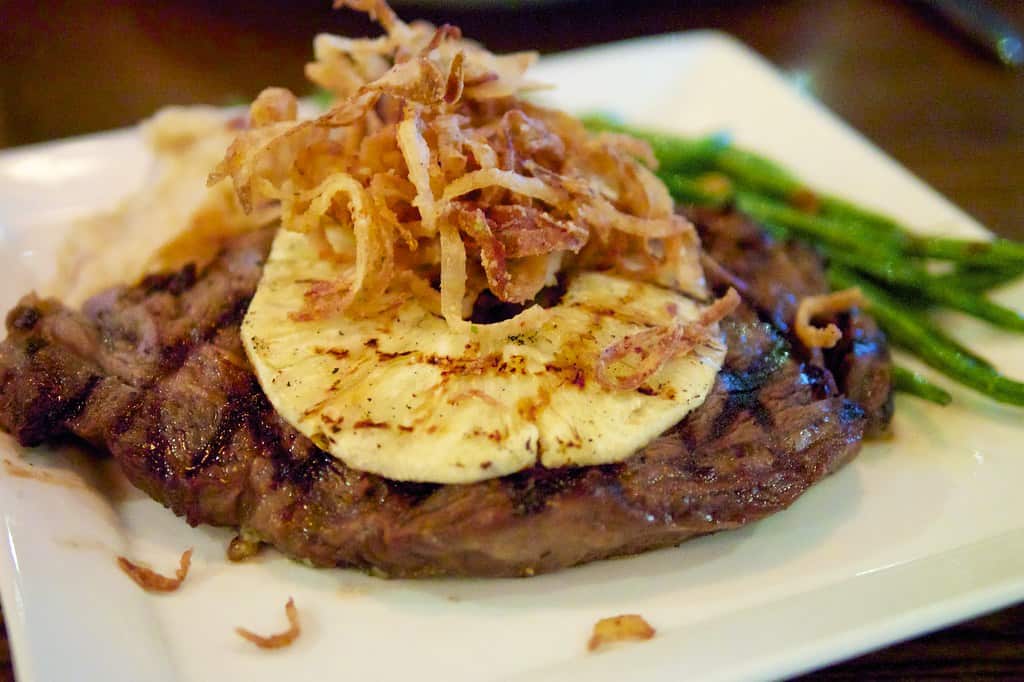
©”Hawaiian Ribeye at Kona Grill – Baltimore, Maryland” by Au Kirk is licensed under BY 2.0. – Original / License
Kona Grill declared bankruptcy in 2019, and the situation continues to be a challenge for this chain. In the first quarter, Kona reported a 9.7% drop in same-store sales. Current owners of ONE Group have said they believe Kona can eventually reach up to 200 locations, but they’re clearly in the very beginning of what could be a long turnaround.
6. Red Robin
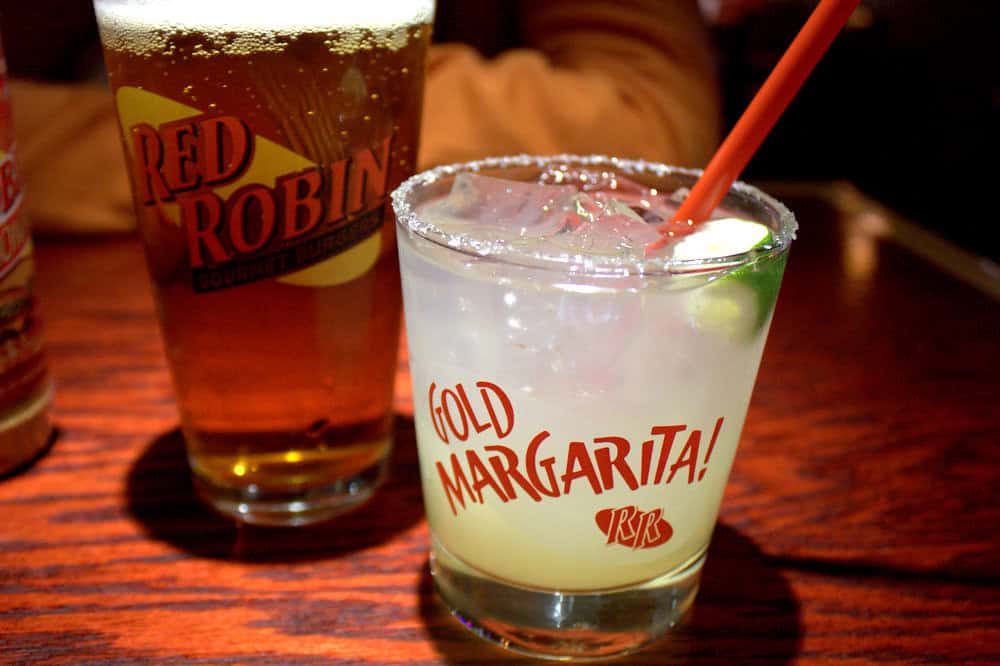
©”red robin margarita” by goodiesfirst is licensed under BY 2.0. – Original / License
Like Cracker Barrel, Red Robin is a publicly traded company so you can see its financials. Unfortunately, they’re not very good.
The company hasn’t turned a profit since $2018 and has reported a cumulative loss of $441 million across that time.
To try reversing course, Red Robin has emphasized its use of higher-quality ingredients and is pushing more “bottomless” items like its famous steak fries.
7. Applebee’s
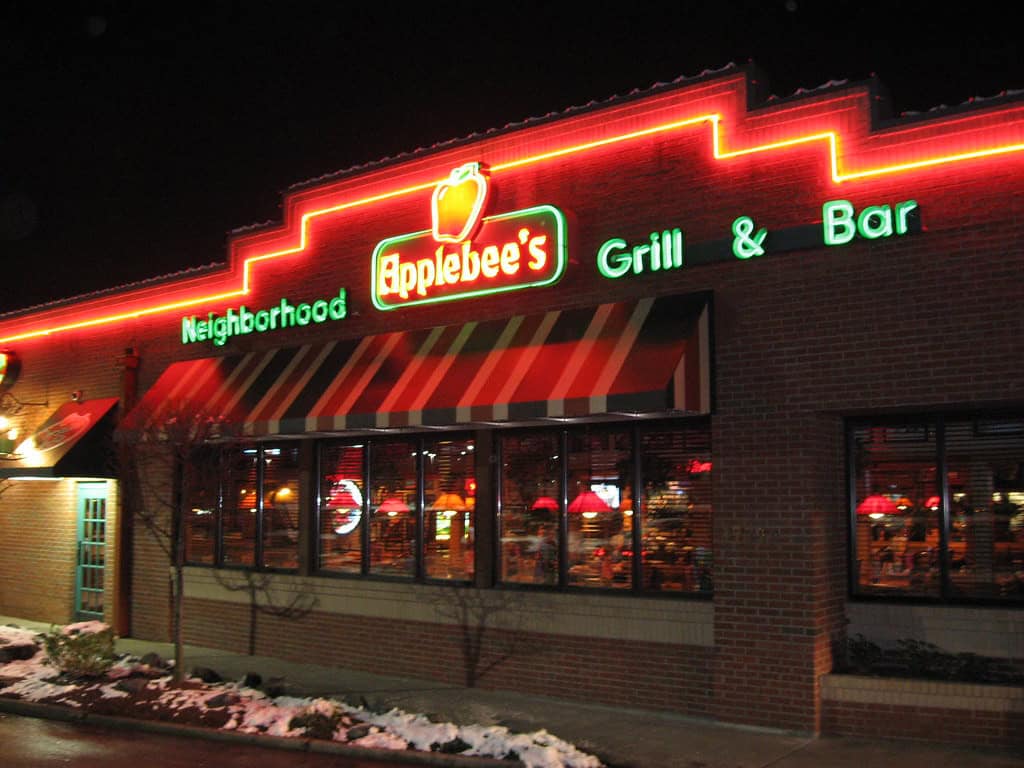
©”Applebees” by PunkJr is licensed under BY-ND 2.0. – Original / License
Applebee’s has been closing locations for years, and this year will be no different. In total, the number of Applebee’s store closures now has passed 300 locations. That still leaves more than 1,500 locations worldwide, but it’s clear the restaurant is on a downward trajectory.
Applebee’s turnaround plans center on luring back customers who are upset with rising fast food prices. New menu items include the Whole Lotta Burger, which costs $9.99. There’s definitely an opportunity for Applebee if the margins work, as the gap between fast food menu prices and sit-down restaurants has come down.
8. Outback Steakhouse
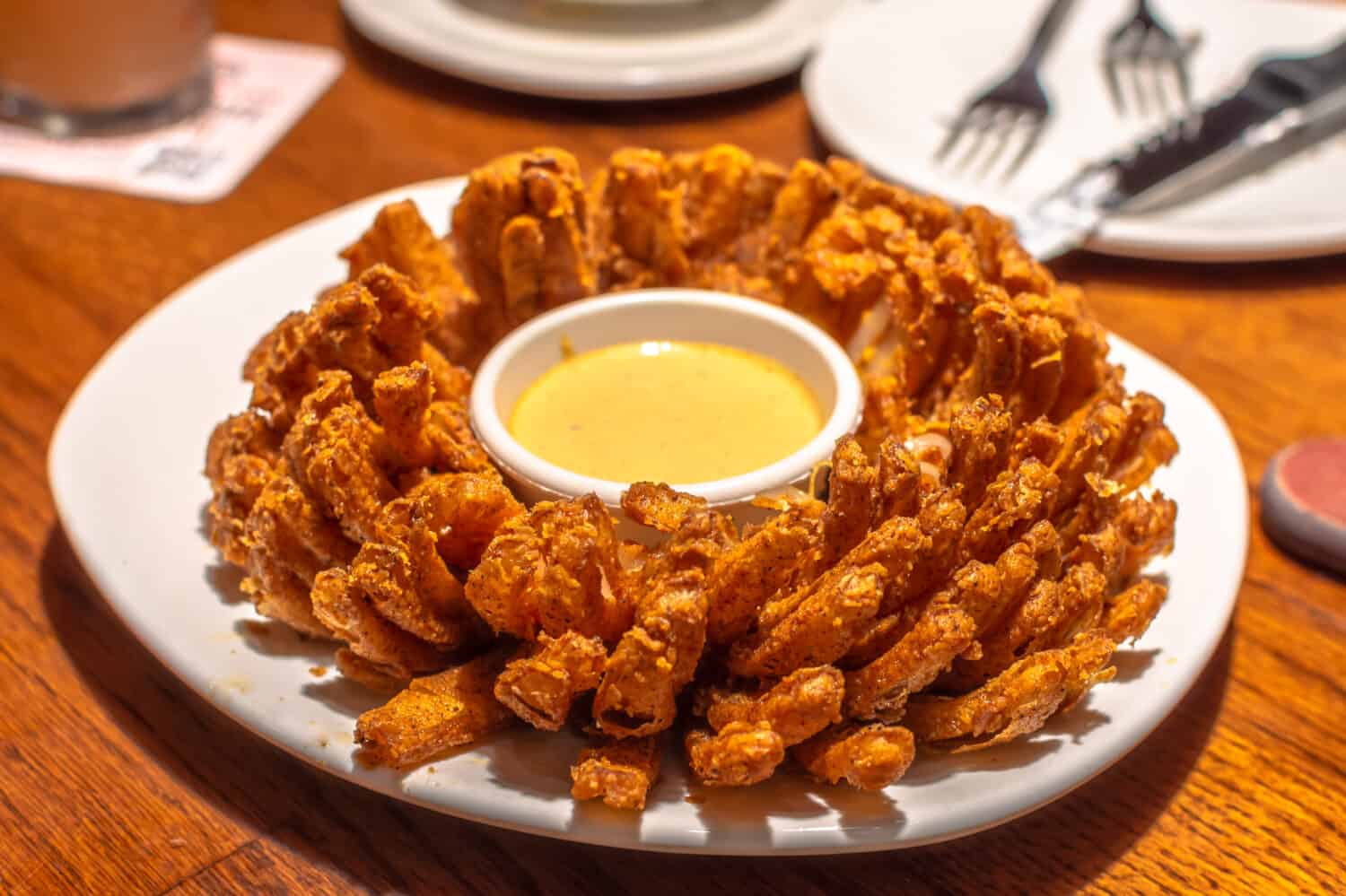
©Chansak Joe/Shutterstock.com
Outback Steakhouse is owned by a restaurant conglomerate known as Bloomin’ Brands. The company owns Outback, Carrabba’s Italian Grill, Bonefish, and Fleming’s Steakhouse.
While being owned by a conglomerate provides some protection, keep in mind that it wasn’t long ago that Red Lobster was owned by Darden. These larger restaurant groups often spin out underperformers.
In Bloomin’s case, their margins fell last year as rising food prices cut into the bottom line and they’ve decided to close 41 restaurants, the majority of which are Outback Steakhouses.
Outback is likely safer than other names on this list, but once store closures begin it’s often an ominous sign.
9. Denny’s
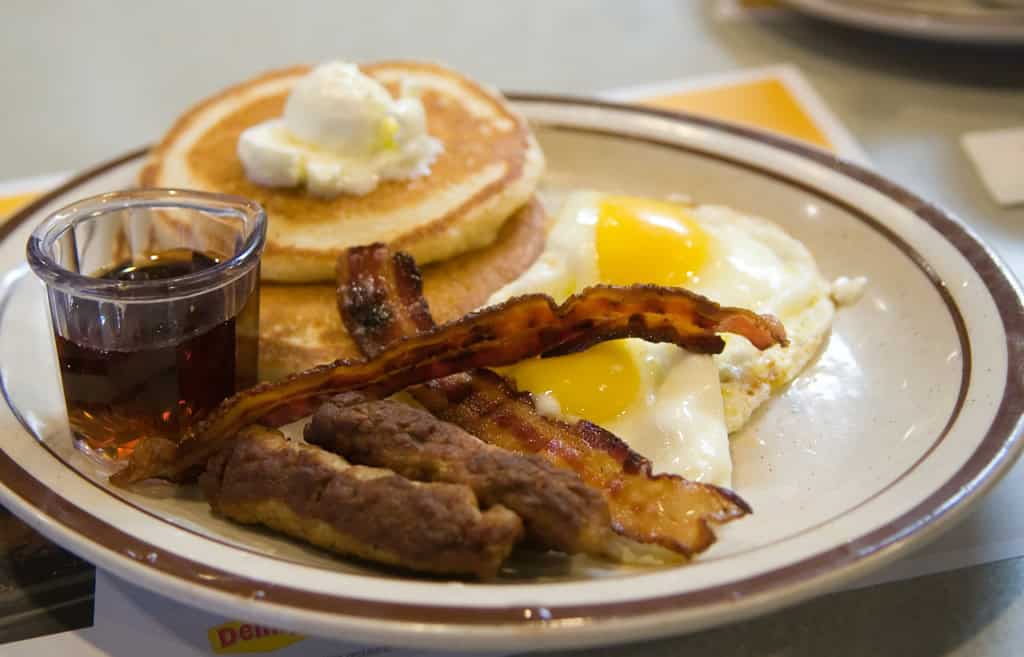
©”free grand slam breakfast from dennys” by Joits is licensed under BY 2.0. – Original / License
Denny’s is another publicly traded company, so we can see its financials. To give Denny’s credit, it has consistently been profitable.
However, profits remain stubbornly lower than pre-Covid, when the company reported $74 million in operating income. Currently, that number is down to $60 million.
Denny’s has been battling margin pressures by closing underperforming locations. In 2023, that meant 57 locations closed down, and the company has signaled that more closures are coming.
As long as Denny’s is profitable, you won’t see it declare bankruptcy. The chain is currently valued at $357 million. However, if food pricing pressure remains, there could be more store closures in the future.
Thanks to store closures and other cost-cutting measures, Denny’s sales are down 16% from 2019. That’s especially troubling since food inflation peaked at more than 10% annually during this time.
The image featured at the top of this post is ©ablokhin / iStock Editorial via Getty Images.


